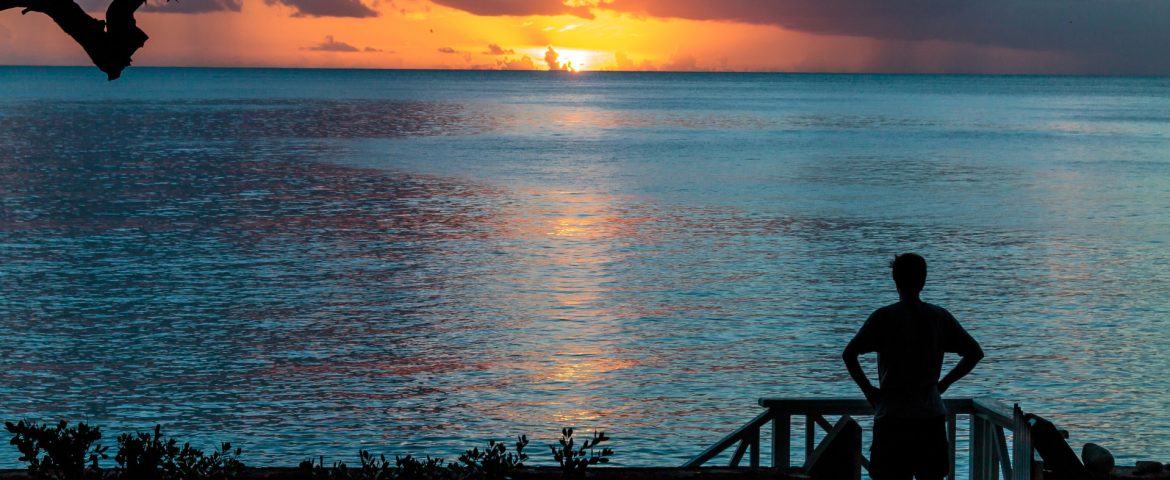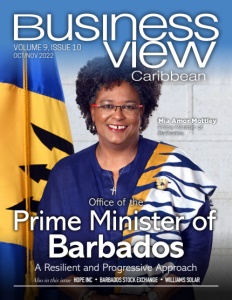Barbados and other CARIFORUM states have the opportunity to benefit from up to €800 million (BDS$1.6 billion) over the next seven years. The funds are being mobilized by the European Investment Bank (EIB), for climate mitigation and adaptation, healthcare systems upgrade and renewable energy efforts.
The EIB is making some €250 million in loans available under two new programmes – the Green and Inclusive Recovery Programme and the Caribbean Sustainable Water Management and Clean Oceans Programme.
Vice-President of the EIB Ricardo Mourinho Félix explained that this funding was designed to attract additional financing from private investors and financial institutions that would result in up to €800 million being made available in loans for infrastructure upgrades.
“The EIB is considering €250 million to €300 million. With this amount we can mobilize other partners so that we can bring investment in green transition, resilient infrastructures, healthcare systems, supporting SMEs that can go up to €800 million in the next seven to eight years,” said Mourinho Félix.
He explained that the EIB was committing €150 million to the Caribbean Sustainable Water Management and Clean Oceans Programme. Loans from this will be blended with a €17 million grant from the European Union’s Caribbean Investment Facility (CIF) for technical assistance and investment.
“This is a programme that is committed to improve climate resilience and house erosion through new investments in security of water supply, in wastewater treatment, solid waste management and in stormwater management across the region,” said Mourinho Félix.
“This will support environmental protection and healthy oceans. This will contribute to the region’s post-pandemic economic recovery in a very impactful manner,” he added.
Meanwhile, he explained that €100 million will be dedicated to the Caribbean Green and Inclusive Recovery Programme, which is intended to improve access and affordability of financing for small-scale green projects in the region through investments by small and medium-sized enterprises.
The hope is for the Caribbean Development Bank (CDB) and other regional development and commercial banks to act as intermediaries.
“The global challenges we face are immense and require unprecedented levels of investment across the globe. This was already true before the pandemic and it becomes ever more the case as the war rages on in Ukraine,” he said.
Mourinho Félix, who is in Bridgetown this week for the joint EU-CARIFORUM Ministerial meeting as part of his first mission to the Caribbean, told Barbados TODAY the programmes will include technical assistance and investment grants, as well as monitoring systems to ensure the projects are implemented.
He gave the assurance that the funding was being provided for projects that will have an impact on the lives of the population.
“When it comes to intermediated funding, we work with our counterparts such that we ensure the projects are dedicated to people and they have the features that are necessary and we work together to ensure that these programmes have the features that people demand.
“If you do a programme that is not in demand by the people it will be ineffective, but for us, the effectiveness is very important . It is not just about bringing millions of dollars to the Caribbean, it is about having the impacts that the amount of funds can bring to the citizens . . . we are guided by the impacts in people’s lives,” he said.
Mourinho Félix, who has oversight for the Caribbean region, said he believed the key issue for the region at this point was to improve economic growth and improve the quality of life of residents.
He added that the level of urgency for building more climate resilient infrastructure in the region was increasing.
“I think making the countries more resilient to extreme climate events is of the essence,” he said.
“If we continue on this path of climate change there is an existential threat for the Caribbean because of the rising seawater levels. It is our duty to protect such a beautiful place in the world and what we can do is to provide the means so that the people of the Caribbean can develop their countries and build infrastructures for the future while getting more connected with the rest of the world,” he said.



 This information will never be shared to third parties
This information will never be shared to third parties